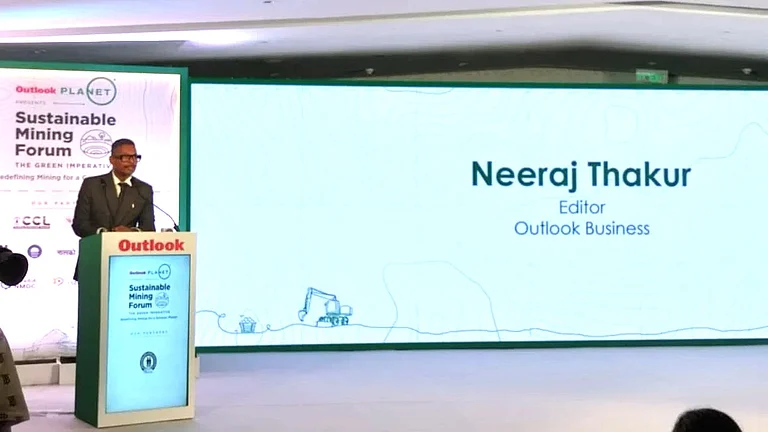TERI’s Dr Vibha Dhawan urged circularity across the entire mining life cycle.
Urban mining and e-waste recovery seen as key to securing critical minerals.
Linear models are short-sighted; circular mining offers long-term economic resilience.
India must rethink growth by embedding sustainability, innovation, and accountability in mining.
Circularity in Mining about Embedding Circular Mindset in Every Stage of Mining Lifecycle, Says TERI DG
The expert’s comments come at a time when the world is racing for critical minerals and there is rising demand from clean energy, electric vehicles, and AI-driven technologies.
Mining should go beyond extraction and must focus on embedding circularity across the entire mining life cycle, Dr Vibha Dhawan, Director General at The Energy and Resources Institute (TERI) said on Wednesday, calling for a systemic overhaul of the sector’s approach to materials, waste, and resource use.
Addressing the Outlook Planet Sustainable Mining Forum, Dr Dhawan said that circularity in mining is not just about looking at the extraction or the post- mining waste phase, it begins at the design and planning stage and continues through to rehabilitation, reuse, and repurposing.
“It’s not just about the cradle or the grave; it’s everything in between,” she said. “The truth is, if we continue with our current take-make-dispose model, we are heading towards collapse not progress,” she added.
The expert’s comments come at a time when the world is racing for critical minerals and there is rising demand from clean energy, electric vehicles, and AI-driven technologies. Most importantly, India is aiming for self-reliance in its energy and industrial goals but the country faces a key challenge - how to secure these critical resources without deepening its ecological footprint.
She further noted that there is a growing importance of ‘urban mining’, which essentially refers to tapping into landfills and e-waste dumps to recover valuable materials such as lithium, copper, nickel, and rare earths.
“With traditional ore becoming harder to access and geopolitical tensions reshaping global supply chains, waste is no longer waste, it’s a resource,” she said while highlighting that urban landfills are becoming the new mines.
However, the challenge lies in economics. It is more costly to recovering materials from waste than mining virgin ores, thereby leading companies to stick to the linear model. But she warned that this approach is short-sighted.
“In the short term, the cost seems high. But the long-term gains in resilience, security, and reduced environmental damage are undeniable,” Dr Dhawan stated.
The expert also pointed put the often-ignored ‘rebound effect,’ where increased efficiency leads to higher consumption. Consumer choices such as upgrading smartphones or laptops every year needs to be driven by sustainability and not affordability alone.
“We need a cultural and behavioral shift, sustainable lifestyles must become part of the narrative. This is not just a policy challenge but a social one,” she mentioned
Further, she urged industry and policymakers to view mining waste as a valuable feedstock. She mentioned how tailings from mines can be used for backfilling, bricks, cement production, or even extraction of metals. Acid sludge contains commercially viable iron and even bauxite and manganese waste has potential if processed through upgraded technologies.
Concluding her address, Dr Dhawan outlined five focus areas to embed circularity into India's mining and mineral ecosystem: close the data and research gap, build transparent feedback loops, encourage innovation and living labs, redesign with intent and strategy and hold stakeholders accountable.
“In the end, it’s not just about reducing emissions or managing waste, it’s about rethinking how we define growth, value, and responsibility,” she said.
Thereby, as India eyes a clean energy future, it’s clear that circular mining is not just good environmentalism but more about its smart economics and a strategic necessity.

